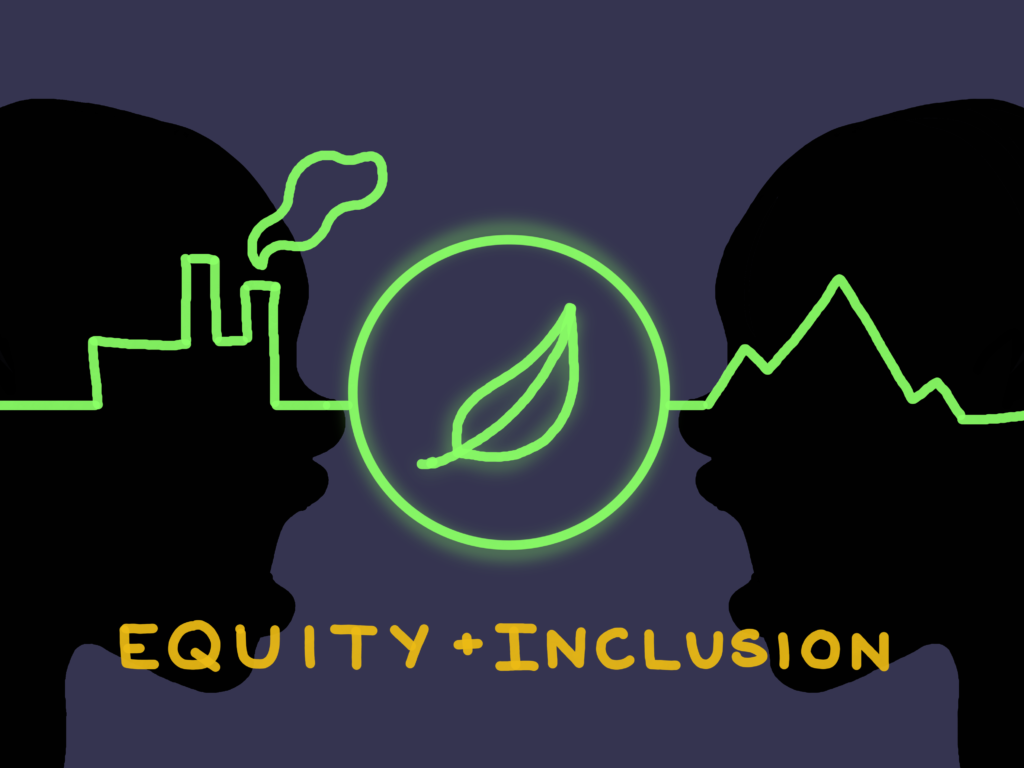
Graphic by Sage Setty/The Choate News
On Wednesday, October 21, the School held its second virtual student debate, which had the resolution “The United States federal government should implement a ban on fracking within the next presidential term,” and involved pod leaders of the School’s debate team Jordan Azzinaro ’22 in affirmation and Emma Hermacinski ’22 in negation.
This event is a part of a series of monthly webinars between September and November leading up to the 2020 U.S. Presidential Election.
According to the Director of Equity and Inclusion Dr. Rachel Myers, this debate aimed to help the audience understand what it means to be an informed voter and to remind the community that people can be both thoughtful and politically different.
“Modeling civil discourse is so important right now because what we’ve been seeing over the last decade is increased vitriolic exchange and even encouraged divisiveness from political candidates,” said Dr. Myers. “One of the things that all of our alumni panelists agreed upon was that the presidential debate that occurred on September 29 was not representative of how debate should have went for two people competing to lead the United States for the next four years.”
“Modeling Civil Discourse: A Live Choate Debate” was moderated by Debate Captain Bianca Rosen ’21. Because the purpose of the debate was to demonstrate civil discourse, the arguments presented by each debater do not necessarily reflect their beliefs.
“I think these debates are extremely important because they’re educational and really showcase the heart of an issue,” said Hermacinski. “Having debates based on research and fact as well as persuasion is critical to understanding the issues of our nation and our world.”
The debate began with Azzinaro emphasizing the immediate threat that fracking poses with its detrimental effects on the environment. Azzinaro recognized that four years is a short amount of time to ban fracking, but she argued that the U.S. needs to take action as soon as possible to prevent further irreversible damage from climate change.
She went on to discuss several other drawbacks to fracking, explaining that the chemicals involved are hazardous to human health and that the process of fracking has led to an increase in human-induced earthquakes.
Azzinaro’s proposal was to build renewable energy plants in place of fracking, which would also provide more jobs. She said, “I think no matter what regulations you pose on [fracking], you cannot eliminate the methane that it produces, and thus you cannot eliminate the effect it has on air pollution and global warming. Therefore, regulations, no matter how strict and severe, would not be able to completely reduce the problem at hand the way banning will.”
On the opposing side, Hermacinski’s main arguments were that banning fracking so quickly is unreasonable and that doing so would cause massive consequences on the economy, including increasing unemployment and skyrocketing living costs.
She stated that fracking provides the world with a significant amount of energy, and banning it will only lead the United States to depend on coal and other nonrenewable energy sources instead. While Hermacinski acknowledged that climate change was a serious issue, she explained that putting a ban on fracking would not help in the long run. According to Hermacinski, the detriments of a sudden ban on fracking to the national economy outweigh its possible environmental benefits.
“In the end, it is so much worse to shut down fracking and live off of foreign oil than to remain with a cleaner energy of natural gas and transition safely. It is so much costlier and less environmentally friendly to import fossil fuels and scramble to rebuild our energy grid in four years than to keep our independence and be prepared to switch to renewable [sources] when the time is right,” said Hermacinski.
She proposed that the United States should devote significant time to researching fracking during the next presidential term.
Both Hermacinski and Azzinaro, who are close friends and live in the same dorm, were excited to debate against each other and proud of their speeches.
Hermacinski said, “I’m quite proud of myself — that may have been one of my finest debates. I thought the structure and timing of my speech worked really well and that the eight to ten hours of research I put in paid off.”
Many audience members found the debate engaging and informational. Tenzin Bista ’23, who watched a recording of the debate, said, “I did not expect such a high level of debating and was pleasantly surprised. The debaters were very well informed and prepared and showed each other lots of respect as well.” Another viewer of the debate, Matthew Yeo ’23 said, “I really enjoyed watching the debate and certainly learned a lot about the topic.”


